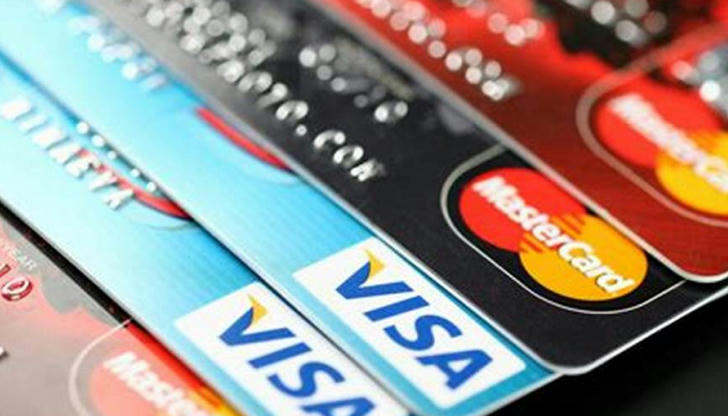Unlock Financial Freedom In Greece: Guide to Credit Cards
Living in Greece—whether you’re savoring souvlaki in Athens or watching sunsets in Santorini—comes with its own rhythm. But financial surprises? Those never take a vacation. Credit cards can be your golden ticket to flexibility, rewards, and peace of mind... if you use them wisely. Let’s dive into how to master credit cards the Greek way—no ouzo-fueled regrets allowed!

Why Credit Cards Are a Must-Have in Greece
The Greek Lifestyle Demands Flexibility
From spontaneous island-hopping trips to last-minute repairs on your Athenian apartment, credit cards offer:
- Instant access to funds when ATMs are scarce (hello, remote villages!).
- Rewards like cashback on daily essentials (think: frappés, olive oil, and ferry tickets).
- Fraud protection—because pickpockets in crowded markets don’t take holidays.
Fact: Over 65% of Greeks under 40 use credit cards for online shopping (Bank of Greece, 2023).
Top Credit Card Types for Life in Greece
1. Travel-Ready Cards: For the Island Explorer
- Best for: Expats and locals who love weekend getaways.
- Perks:
- No foreign transaction fees on eurozone purchases.
- Free travel insurance (e.g., Aegean Airlines co-branded cards).
- Watch out: High annual fees (€50–€150).
2. Cashback Cards: Everyday Savings
- Best for: Groceries, fuel, and taverna bills.
- Top picks:
- Alpha Bank’s “Blue” Card: 3% cashback at supermarkets.
- Eurobank’s “Smart” Card: 2% on utility payments.
- Ideal users: Budget-conscious families.
3. Low-Interest Cards: Debt Management
- Best for: Avoiding the 29% APR trap of standard Greek cards.
- Key feature: 8–12% introductory APR for 6–12 months.
- Pro tip: Pair with a repayment plan to clear existing debt.

How to Choose the Right Card: 3 Quick Checks
1. Match Your Spending Habits
| Spending Pattern | Card Type |
|---|---|
| Frequent traveler | Travel rewards card |
| Daily essentials | Cashback card |
| Debt consolidation | Low-interest card |
2. Compare Fees (Before You Commit!)
- Annual fees: €0–€200.
- Late payment fees: €10–€25.
- Cash advance APR: Up to 35% (avoid unless desperate!).
3. Read the Fine Print
- Grace period: 21–25 days (varies by bank).
- Reward expiration: Some points vanish after 12 months.
Avoid These 4 Credit Card Pitfalls in Greece
❌ Paying Only the Minimum
- Why it’s risky: A €1,000 debt at 24% APR takes 7 years to pay off with minimum payments.
- Fix it: Always pay the full balance.
❌ Ignoring Currency Conversion Fees
- Example: Using a non-euro card in Mykonos? You’ll pay 3% extra on every transaction.
- Fix it: Get a card with 0% foreign fees like Revolut or N26.
❌ Applying for Multiple Cards at Once
- Each application dings your credit score by 5–10 points.
- Fix it: Space out applications by 6 months.
❌ Missing Fraud Alerts
- Red flags: Unrecognized charges in Thessaloniki when you’re in Crete.
- Fix it: Enable SMS notifications from your bank.

Greek Banks vs. International Cards: What’s Better?
Local Banks (Alpha, Eurobank, Piraeus)
- Pros:
- Easy in-person support (150+ branches nationwide).
- Tailored rewards for Greek retailers.
- Cons: Higher fees for international use.
Digital Banks (Revolut, N26)
- Pros:
- Zero monthly fees.
- Instant eurozone transfers.
- Cons: No physical branches for urgent issues.
Step-by-Step: Applying for a Card in Greece
1. Gather Documents
- ✅ Greek ID or residency permit.
- ✅ Proof of income (payslips or tax return).
- ✅ Proof of address (utility bill or rental contract).
2. Check Eligibility
- Minimum salary: €8,000–€12,000/year (varies by bank).
- Credit score: 650+ (check via Credit Score Greece).
3. Submit Online or In-Person
- Fast approval: 2–5 business days for digital banks.
- Traditional banks: 1–2 weeks.
The Bottom Line
Credit cards in Greece are like olive oil: best used generously but wisely. Whether you’re renovating a stone house in Pelion or sipping coffee in Plaka, the right card can turn financial stress into sunny-day serenity. Just remember: spend like a local, plan like a Spartan!
